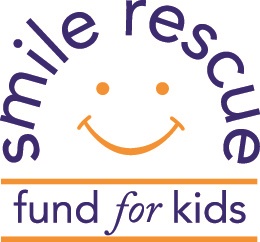About the Smile Rescue Fund for Kids
The Smile Rescue Fund for Kids was founded by Dr. Leon Klempner, a New York orthodontist who has a strong professional interest in helping children born with dentofacial deformities such as cleft lip and palate. Over the past 15 years, Leon has traveled the world with volunteer groups such as Operation Smile, Smile Train and Health Volunteers Overseas to help treat children and teach local medical personnel in underdeveloped countries.
Through his volunteer work, Leon identified a recurring problem: due to the cost of treatment, children with the most severe deformities do not fall into the realm of support that many non-profits and charities provide. It’s simply more efficient to treat many children with milder cases than a very few who were severe. These children are left without care, and without hope. It was frustrating and sad for him, so he decided to take action.
In May 2011, Leon founded the Smile Rescue Fund for Kids. His vision is a society where all children, anywhere in the world, have the opportunity to develop to their full potential.
Since then Leon and the SRFK volunteer team have been fundraising, networking, building teams and negotiating visas, all in an effort to provide medical care and education for one child at a time. In May 2013 he finally secured the funding and approval needed to bring SRFK’s first child to the United States for treatment by the craniofacial team at Stony Brook University Hospital, of which he is a member. Saline, an 11-year-old girl from Kenya, underwent surgeries throughout late 2013 and early 2014, after which her facial deformities have been largely corrected. She’s back at home now, attending school and making friends. Her confidence has grown exponentially and we continue to keep in touch.
Leon is repeating this process, and scaling it up, so he can help more children that have no other place to turn for support. He’s working on placing children with medical teams around the world who will provide the surgeries they need to lead healthy and productive lives. Read more about our newest child on our blog.
Through this process, Leon also identified that unsanitary living conditions and malnutrition are significant contributing factors to the incidence of facial deformities. Addressing the medical conditions without addressing the underlying environmental issues seemed shortsighted. Now the SRFK goal is expanded to also provide clean drinking water, solar lighting and educational opportunities to the villages of SRFK kids, wherever feasible.
Clean Water
In late 2013 we were able to supply seven 5,000 litre water tanks to the village of God Ong’eche. These containers are used to harvest rainwater that can be used as sanitary drinking water, as the current sources are contaminated and lead to infections like Saline, our first SRFK child, contracted (NOMA).
Solar Power
The solar committee has provided funding for 214 solar lamps, helping to light the homes of school aged children in God Ong’eche. The previous alternative is using kerosene lamps, which are widely used for evening lighting in rural areas Africa where electrical distribution is not available. Using kerosene for lighting is extremely inefficient, dangerous and expensive, and it has extensive health and environmental drawbacks. The average family spends almost 1/2 of their money to purchase kerosene. As with all of our projects, we wanted to create a sustainable protocol for providing additional solar lamps. Recipients are asked to make a small one time contribution which will be used to sustain the initiative.The World Bank estimates that breathing kerosene fumes is the equivalent of smoking two packets of cigarettes a day and two-thirds of adult females with lung cancer in developing nations are non-smokers. Source: BBC News
Education
The goal of the education committee is to assist with a sustainable program for the mentally and physically challenged students in their village schools, helping to create a better educational experience for these children whose educational needs are not typically addressed. To date we have provided seven custom wheelchairs to enable these children to attend school. In addition, making available materials for students to learn a trade, and also providing wheelchairs to children that have difficulty coming to school each day were among the goals accomplished by this sub committee of Smile Rescue Fund for Kids. The team is making use of six manually powered sewing machines so the children can learn a useful vocation. SRFK has provided cloth material, sewing needles, buttons and other supplies to hand manufacture school uniforms. As with all projects, the team create a sustainable protocol so the community would not be dependent on charitable donations: uniforms can be manufactured and sold at a lower cost than is currently available and the profit will be used to purchase additional sewing machines, materials and supplies.




